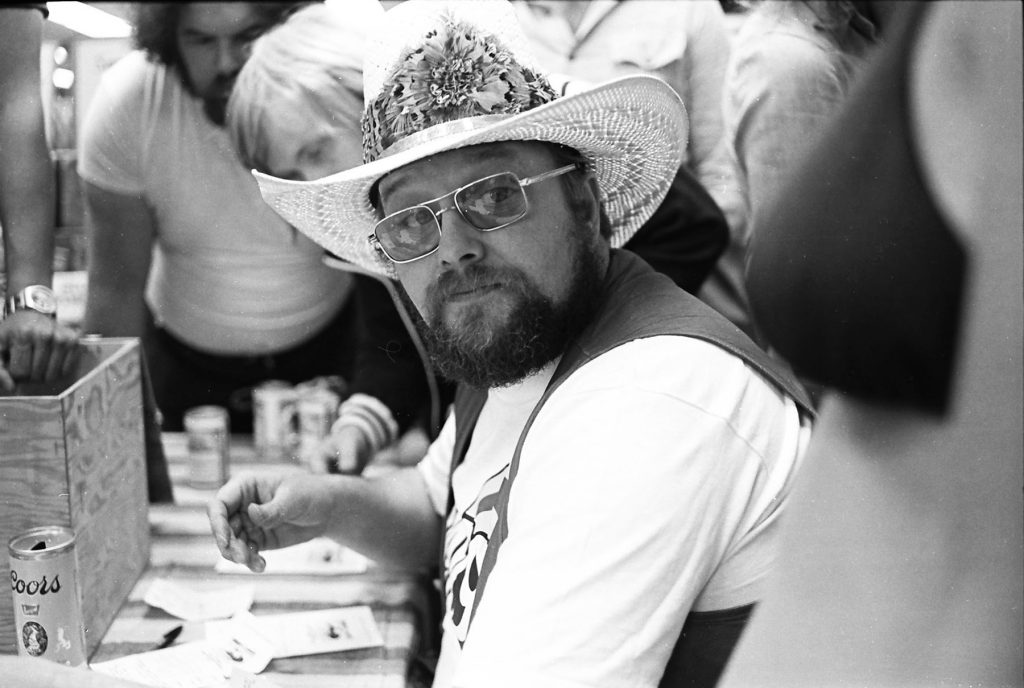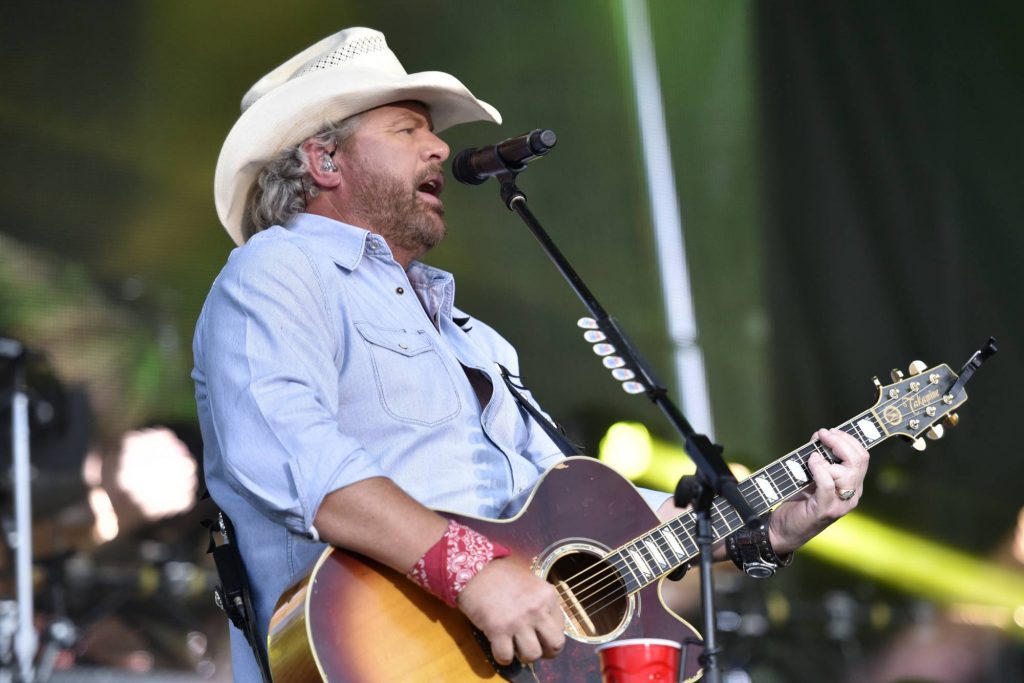
Charlie Daniels: 10 Definitive Songs
Charlie Daniels may be synonymous with “The Devil Went Down to Georgia,” arguably one of the earliest examples of country-rap, but his catalog was defined by more than sing-speak recitations and fiddle fire. He dabbled in the jam-band side of Southern rock, experimented with polished Eighties anthems, and notably carried a torch for classic country music — especially its storytelling. The Country Music Hall of Fame member died July 6th at 83, leaving behind songs that, while sonically diverse, were all united by the expert musician’s love of playing.
Daniels sang-spoke his way through his biggest song, “The Devil Went Down to Georgia” in 1979, but first embraced that style six years earlier with “Uneasy Rider.” At its core it’s a novelty song, with Daniels in the role of a long-haired hippie (not the long-haired country boy that was to come a year later) who suffers a flat tire and finds himself in an unwelcoming redneck bar. To get out of a fight, Daniels starts spinning yarns about a patron who is really an FBI spy sent to keep tabs on you yokels. “I laid it on thicker and heavier I went,” he recounts. Alas, Daniels laid it on too thick in a 1988 remake, a homophobic song that is more unfortunate than uneasy. J.H.
If there’s a song that manages to embody the complicated duality of Charlie Daniels, it’s “The South’s Gonna Do It” (popularly known as “The South’s Gonna Do It Again”) from 1974’s Fire on the Mountain. On the one hand, it’s a scorching country-rock tune that makes plenty of space for some flashy fiddle and sizzling electric guitar licks. And on its face, it serves as a friendly shout-out to his Southern rock brethren, name-checking Lynyrd Skynyrd, the Allman Brothers Band, ZZ Top, Wet Willie, and the Marshall Tucker Band, among others. But there are also echoes of Lost Cause mythology in there, if you’re listening closely enough: “You can be proud, hear now/Be proud you’re a rebel, because the South’s gonna do it again and again.” It’s everything good about Daniels, along with everything that now, in a time of national reckoning, looks problematic. J.F.
This has to be the conflicted-and-then-some Daniels’ most successful attempt to straddle our culture-war battle lines. “Long Haired Country Boy” finds Daniels believing Jesus walked on water but cursing the TV preachers who condemn rock & roll. Like any good “Okie From Muskogee,” he loves getting drunk, but he also has hippie hair and you better believe he smokes marijuana. He admits he’s lazy as a hound in the heat, but he “ain’t askin’ nobody for nothin’” — could you leave him the hell alone? This 1974 album cut became a minor country hit in 1980. By then Hank Williams Jr. had already primed the pump with the acoustic Southern-rock sound and passive-aggressive belligerence that Daniels invented with “Long Haired Country Boy.” D.C.
Daniels drew on the geography of his Southern upbringing to supply the vivid imagery for the chilling narrative “The Legend of Wooley Swamp,” the opening track of the CDB’s 1980 album Full Moon. “I come from the coast of North Carolina, and we’re loaded down with swamps,” he told IndieLand in 2015. “I’m familiar with them and spent quite a bit of time in them — hunting and logging and that sort of stuff — and especially at night, they take on a whole other look.” Mixing brawny-yet-intricate guitar riffs with funky stabs of clavinet, it follows in the sing-speak tradition of “The Devil Went Down to Georgia” to spin a haunting story about a greedy old man and three murderous brothers who come to take his money. But of course when Daniels stops singing to put his serious narrator hat on, you know some dark shit is going down — not a one of the siblings makes it back out of that swamp. J.F.
Daniels preaches American perseverance and unity among the “cowboys, hippies, rebels, and yanks” in this patriotic-to-the-hilt anthem off Full Moon. More rock than country and with most of the Southern grit polished off, the slick “In America” was made with a larger audience in mind — it found it too, nearly cracking the Top 10 on the Hot 100 in 1980, just a few months before the Reagan presidency. Here, Uncle Charlie is in full-on Uncle Sam mode, warning other countries — including Russia! — against ever counting out the U.S. “We’ll all stick together,” he sings, “and you can take that to the bank.” It sounds quaint today. J.H.
Daniels put a Southern-fried spin on Faust’s deal with Mephistopheles for what would become his signature song. “The Devil Went Down to Georgia” tells the story of a behind-on-his-collections demon who tries to win an easy soul by challenging a simple country boy named Johnny to a fiddle contest. Up for grabs? A fiddle of gold against the kid’s eternal damnation. To achieve the swirling chorus effect of the devil’s solo, Daniels played seven different parts. “We wanted a dark, ominous, intimidating sound and hit on the idea of multiple fiddles,” he wrote in his 2017 memoir. In the end, good triumphs over evil, and Johnny gets the gold — but can’t resist rubbing salt in ol’ Scratch’s wound: “I done told you once you son of a bitch/I’m the best there’s ever been.” J.H.
Written by New York folksinger Dan Daley, “Still in Saigon” tells the conflicted tale of a Vietnam War veteran suffering from the lingering effects of combat and trying to figure out where he fits in “normal” life. Unlike “In America,” it doesn’t lean toward the jingoistic. Instead, the drum-heavy song offers a stark, unflinching look at PTSD: “I can’t tell no one, I feel ashamed/afraid someday I’ll go insane,” Daniels shout-sings in the bridge. Remarkably, the song was pitched to both Daniels and Bruce Springsteen. ” At first Charlie Daniels’s people said he wasn’t recording it either,” Daley told The New York Times in 1982. “By the time we found out he had recorded it, he’d already performed it at the CBS records convention and gotten a real powerful response.” J.H.
Usually more closely associated with uptempo rock numbers, Daniels scored himself a winning ballad with “Mississippi,” from 1979’s Million Mile Reflections. The follow-up single to “The Devil Went Down to Georgia,” it peaked just inside the Top 20 on country radio. With a lush string section reminiscent of Glen Campbell’s sweetly orchestrated country-pop chestnuts, “Mississippi” features a surprisingly tender, aching vocal performance from Daniels, who croons about his longing for a place (or person) he hasn’t seen in a long time. “Like a mist in the morning, from some dream I’ve left behind,” he sings, with no trace of his trademark bluster. J.F.
Of all the songs in the Charlie Daniels canon, few evoke the jam-band side of Southern rock quite like this track off 1976’s Saddle Tramp. A Daniels solo composition, “Sweet Louisiana” pairs some slippery slide guitar with CDB keyboardist Taz DiGregorio’s barroom piano for a euphoric result. The live version off 1978’s Volunteer Jam III & IV concert album is even more freewheeling, with Daniels and Tommy Crain’s twin guitar leads bringing the jam vibes to a satisfying head. J.H.
An outlier in a catalog more often associated with good-ole-white-boy anthems and Southern gothic story-songs, this 1985 Top 10 country hit is a dancing-all-over-your-troubles rave-up. It launches with an electric guitar part that, uh, tinkers with the one in Kenny Loggins’ “Footloose,” but Daniels quickly commandeers the lick for himself. The hurtling rhythm is roots-rock like something Dave Edmunds might race through, and Daniels charges at his lines like he’s channeling Jerry Lee Lewis: “Pour me another one/I’m finished with the other one!” But it’s Daniels’ delirious fiddle that moves the crowd and tips you off that this drinking cure might just work. D.C.




